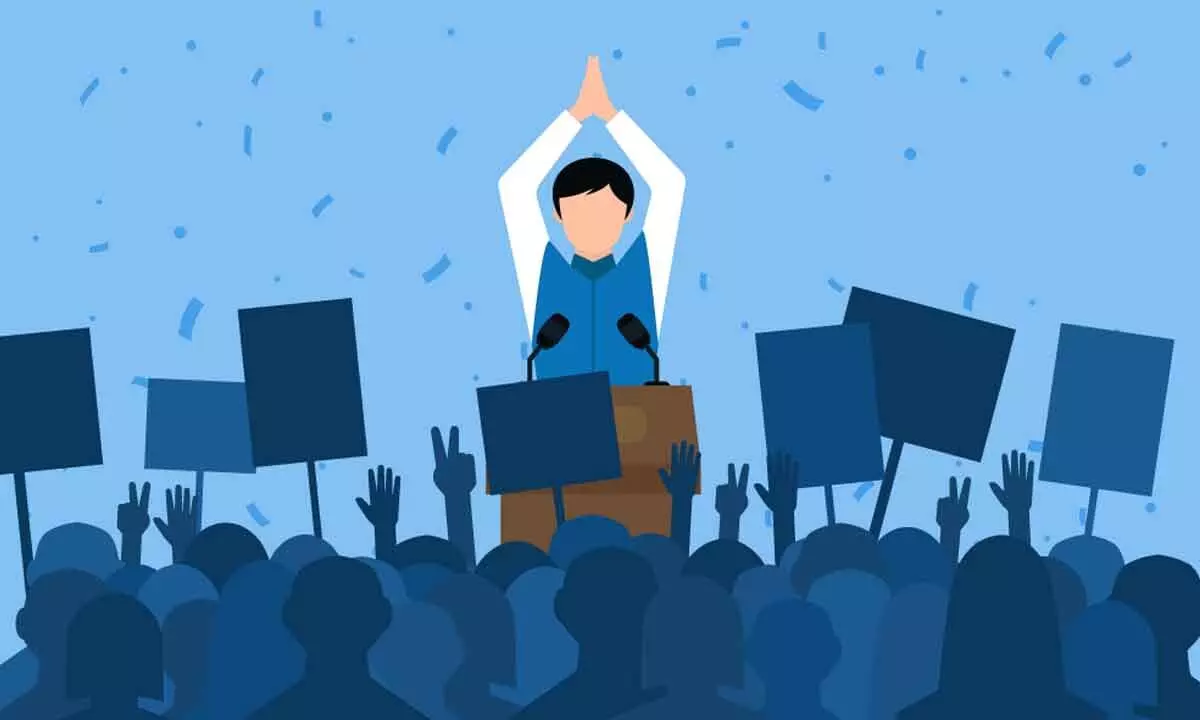For the country’s sustained growth, politicians need to look beyond elections
image for illustrative purpose

The latest World Economic League Table report of the Centre for Economics and Business Research (CEBR) is bound to gladden supporters of the BJP-led Union government. By the end of the century, India will be the largest economy in the world with CEBR, the London-based economic consultancy, acknowledging that “India is expected to overtake both China and the US after 2080, based on demographic estimates and projections.” The ruling dispensation has reasons to feel vindicated. The report, however, predicates the rise of India’s economic power on some prerequisites-it has to find solutions to poverty, inequality, human capital, infrastructure improvement and environmental sustainability. “Addressing these issues requires concerted efforts from the government, private sector, civil society, and collaboration with the international community,” the CEBR report says.
The political class and opinion makers will have to play a crucial role in addressing these issues. Lest one forgets, each of these problems can have conflicting solutions. For instance, poverty eradication and inequality reduction could result in socialist policies, like it did in the 1970s, leading to the perpetuation of both and augmentation in the magnitude of corruption.
Besides, more socialism also implies an increase in the size and scope of government—and a concomitant decline in civil liberties and democratic rights. This, in turn, had further a deleterious effect on both the economy but the country. Hence, it is important that the economic policy remains rational and commonsensical rather than dogmatic and doctrinaire. Politically, Leftists were never strong enough, but their influence was greatly disproportionate to their electoral strength. They are, thankfully, no longer as strong—in terms of political strength and intellectual influence—as they used to be before liberalization. This will stand India in good stead. However, it would be naïve to believe that there would no longer be any challenges to sustain the high growth rate for decades. Consider the protests by pro-Kannada groups, which resulted in vandalizing over 20 shops across different commercial areas in Bengaluru on Wednesday. They smashed the signboards and billboards in English.
Everyone has the right to promote their language and culture but to indulge in violence in the name of language is not just bad in principle but can also be detrimental to the cause of attracting investment. Unfortunately, such movements take place in different parts of the country—mostly with the clandestine backing of politicians and overt support from some sections of intellectuals. Worse, politicians indulge in many more tactics for short-term gains. A statesman, they say, thinks of the next generation; a politician, of the next election. Sadly, there are not many statesmen in our country; we only have politicians who are focused on the next elections. For that, they use various tricks—inflaming passions by raising linguistic and cultural issues, promising caste and religion-based quotas, changing names of places and the likes. The political class must realise that there are limits to sentimentalism and populism. They must focus on what the CEBR report calls “key drivers”—large and youthful population, a growing middle class, a dynamic entrepreneurial sector, and increasing global economic integration. That will make India truly great.

